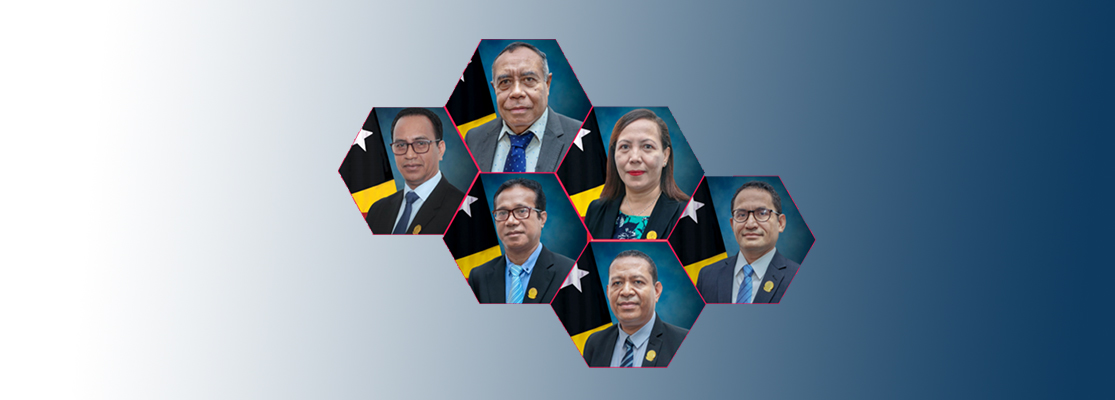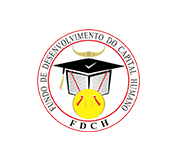
About FDCH
1.Profile of FDCH
In accordance with Article 2 Number 4 of Law No. 1/2022, 3 January General State Budget 2022, the Human Capital Development Fund (FDCH) was created as an Autonomous Fund by Law No. 1/II, 14 February 2011, which approved the General State Budget for 2011. Regarding financial management and budgeting. According to Article 2 of Decree Law No. 18/2024, 22 March, which regulates the Human Capital Development Fund, FDCH is an autonomous fund with legal personality, administrative, financial, and patrimonial autonomy. Additionally, according to Article 32 No. 2 of Decree-Law No. 16/2021, 15 September, FDCH is integrated as an indirect administration of the State. It operates in accordance with the public institute regulation in addition to that. When FDCH was founded, the following vision and mission:
2. Legal Basis
Human Capital Development Fund (FDCH) Regulated by decree law no 18/2024, 22 March regulation Human Capital Development Fund.
3. Objectives of Establishing FDCH
The general goals of establishing the FDCH are: “To develop a national human resource plan to support development in various areas, improve planning, management and implementation of programmes and also ensure the implementation of programmes with its transparent public budget execution and government expenditure related to the costs of training, scholarships and human resource development programmes in Timor-Leste”.
According to Article 3 of the Decree-Law regulating FDCH, the Human Capital Development Fund aims to:
– Ensure financial public investment in training and development of national human resources.
– Allocate scholarships and training based on qualifications for national professionals.
– Provide legal guarantees for compliance with reimbursement obligations.
– Enhance openness and accountability by establishing reporting and service delivery processes for training and human capital development project.
4. Management and operation of the fund.
The management and operation of the fund is subject to the bodies listed in Article 6 of the FDCH decree law as follows:
1. Board of Directors (CA-FDCH)
2. Executive Director
3. Single fiscal
5. CA-FDCH Structure.
According to Article 7 of Decree Law No. 18/2024, dated March 22, the Board of Directors is made up of the Minister of Planning and Strategic Investment, the Minister of Higher Education, Science, and Culture (MESCC), the Minister of Finance, the Minister of Justice, the Minister of Petroleum and Mineral Resources, and the Secretary of State Vocational Training and Employment (SEFOPE). The composition of the Board of Directors (CA-FDCH) is as follows:
1. Minister of Planning and Strategic Investment (MPIE) as President of CA-FDCH
2. Minister of Higher Education, Science and Culture (MESCC) Permanent Member CA-FDCH
3. Minister of Finance – Permanent Member of CA-FDCH;
4. Minister of Justice – Permanent Member of CA-FDCH;
5. Minister of Petroleum and Mineral Resources – Permanent Member of CA-FDCH and,
6. Secretary of State for Vocational Training and Employment – Permanent Member of CA-FDCH
6. PROGRAMME:
Since its inception, FDCH has launched four major programmes: vocational training, technical training, scholarships, and good governance and institutional management.
1. Vocational Training.
This programme intends to finance Ministerial Lines (LMs) to prepare and strengthen Timorese competences or abilities, particularly those of young women and men, in accordance with labour market requirements. This programme includes the majority of the SEPFOPE program’s money. This programme benefits the entire Timorese public, not just civil servants.
2. Technical Training.
The programme fully supports the capacity development of civil servants or agents throughout the state in a variety of areas, in accordance with government plans and priorities for all sectors, with the goal of increasing knowledge and developing and improving performance service agents or state machinery to better serve their workplace.
3. Scholarship
The focus and objective of this programme is to provide Timorese women and men with the opportunity to continue their studies at the level of higher education, ranging from Diploma 1 to Doctorate, at universities or higher institutes both within and outside of the country. The study areas will reflect the government’s goals and national requirements. From 2011 to 2023, 10,975 Timorese have benefited, with 5,592 active scholarship holders, 5,113 graduates, 263 cancelled, and 7 dying while studying. Scholarships totalled 1,129. This programme also includes support for Professional Internship scholarship holders and best graduates (non-scholarship holders), as well as Individual Requests, which have benefited 18,232 Timorese, 10,664 men and 7,568 women, from 2011 to 2023. Other proposals were submitted and approved by CA-FDCH.
4. Institutional Function and Development
The programme funds the Secretariat’s activities such as financial management, administration, logistical planning, monitoring, and statistics.
When FDCH was founded, the following vision and mission:
Vision:
“Becomes a strong capital or Human Resources development entity to contribute and strengthen Timor-Leste’s development linked to NEDP 2011-2030 goals”.
Mission:
“Contribute to the development of national human resources in various strategic development areas through funding of multi-annual training programs and projects, including programs to increase the training of Timorese professionals”.

THE FDCH SECRETARIAT
1. EXEECUTIVE DIRECTOR OF FDCH:
The Executive Director of FDCH, as defined in Article 10 of Decree Law number 18/2024, 22 March, is the Fund’s executive body, assisted by the Deputy Director. The Executive Director and Deputy are appointed by the Minister of Planning and Strategic Investment (MPIE) for a four-year term that can only be renewed once. 4. Single Fiscal Articles 13 and 14 of the Decree Law regulating FDCH designate the solitary fiscal as the Fund’s supervisory and controlling authority.
2.THE FDCH SECRETARIAT
Oversees general expenditure management, human resources, financial resources, procurement and logistics, communication services, documentation, archives, financial management, and protocol in accordance with the law and guidance (Decree Law Regulation FDCH number 18/2024 22 March, Chapter II, Organisation of Services, Article 15). According to ministerial diploma number 57/2024 dated August 27, the Functional Organic structure of the S-FDCH service that is integrated into the general structure is:
The Office of the Executive Director which accumulates services such as:
– Legal, Technical and Administrative Advisory Services
– Procurement Unit
– Logistics and Asset Unit
Financial Administration Service, which accumulates units such as:
– Administration and Finance Unit,
– Payroll and Accounting Unit
– Human Resource Management Unit.
Technical Service for Fund Operations, which accumulates units such as:
– Scholarship Unit
– Training and Capacity Building Unit
– Plan and Check Unit
– Research Unit, Monitoring and
– Data Management and Informatics Unit
